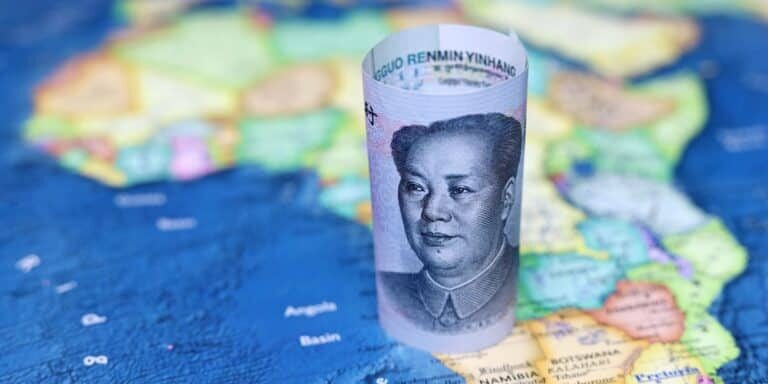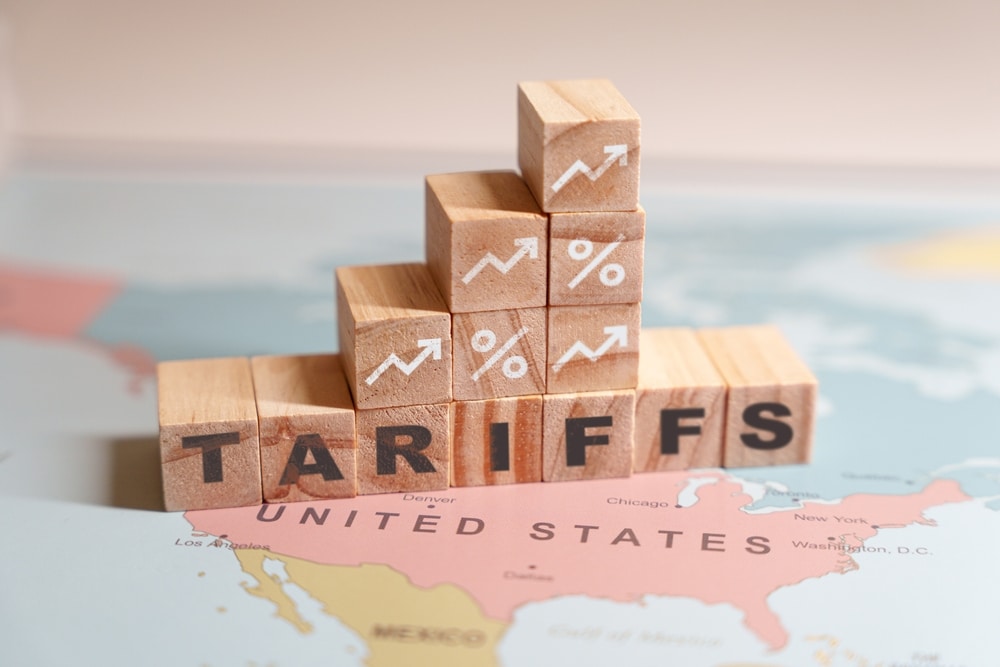
How China’s $50 Billion Africa Deal Threatens America’s Global Dominance and Economic Stability
China’s recent pledge to pour over $50 billion into Africa over the next three years has many observers concerned about the long-term implications, not just for African nations but for the United States as well. As China solidifies its foothold in Africa, the strategic and economic fallout for America could be severe. This massive investment is more than just financial aid—it represents a direct challenge to American influence in Africa and around the globe.
In fact, this move could accelerate a broader shift in global power dynamics, undermine U.S. economic interests, and destabilize the financial system in ways that could eventually hit your wallet. Here’s how.
The Shift in Global Power: China vs. the U.S.
For decades, the United States has been the dominant global player, not just militarily but also economically. But as China expands its influence, especially through massive investment deals like the one with Africa, the balance of power is shifting. Africa, with its vast natural resources, growing population, and strategic geographic position, is crucial to both economic and geopolitical dominance. For years, the U.S. has struggled to maintain its influence in the region, but China has outpaced it by becoming Africa’s largest trading partner since 2009.
By flooding Africa with financial aid, infrastructure loans, and economic partnerships, China is effectively sidelining the United States in a region that is key to future global growth. This shift in influence could weaken America’s ability to negotiate trade deals, secure strategic resources, and even maintain political alliances in the developing world.
While the U.S. has focused on promoting democracy and security in Africa, China has been building railways, roads, and ports — tangible investments that provide immediate benefits to African economies. These infrastructure projects, however, come with a price. African nations are becoming increasingly indebted to China, allowing Beijing to gain significant leverage. Once countries fall into debt traps, they often have no choice but to give China access to key natural resources or strategic assets, such as seaports, oil fields, and mining rights — resources that the U.S. would otherwise need to maintain its own economic stability.
Resource Control: A Threat to U.S. Supply Chains
Africa is home to vast reserves of critical raw materials, including rare earth minerals, copper, and cobalt, which are essential for modern technology and military equipment. Many of these resources are vital for the production of smartphones, electric vehicles, and renewable energy technologies — sectors where the U.S. and its allies are heavily dependent.
By securing control over these resources through its economic deals, China could dominate the global supply of critical minerals and leave the U.S. vulnerable to supply chain disruptions. This would weaken America’s industrial competitiveness in key sectors, from tech to defense, where access to raw materials is essential. If China controls the supply, it can dictate prices or restrict access, putting American companies — and the entire U.S. economy — at a disadvantage.
Moreover, China’s ability to develop strategic infrastructure in Africa gives it leverage over global trade routes, particularly key maritime channels. If Beijing controls vital African ports and transportation hubs, it could influence or disrupt global shipping routes, further weakening America’s ability to access critical resources and export its goods competitively.
Debt-Trap Diplomacy: Exporting Economic Control
The term “debt-trap diplomacy” has become synonymous with China’s lending practices in Africa and other developing regions. Essentially, China extends large loans to countries for massive infrastructure projects — loans that often come with strings attached and are difficult for poorer nations to repay. When these nations inevitably struggle to service their debt, China gains control over strategic assets or secures long-term political and economic influence.
This practice represents a significant threat to the United States, not only because it sidelines American influence but because it undermines international financial stability. The more countries that fall into China’s debt trap, the more control China gains over global markets, supply chains, and political institutions. As African countries default on their loans, China may take control of key infrastructure or resources that were previously open to American companies and influence.
For instance, if China gains control over African oil fields or ports, it could dictate the terms of global oil supplies, undermining American energy security. And the Belt and Road Initiative (BRI), through which much of this lending takes place, isn’t just about building roads and bridges. It’s about creating a new world order, with China at the center and U.S. influence on the periphery.
Undermining the Dollar and U.S. Financial System
One of the more subtle but potentially devastating ways China’s growing influence in Africa could hurt the U.S. is by weakening the dominance of the U.S. dollar. Currently, the dollar serves as the world’s primary reserve currency, meaning most global trade and financial transactions are conducted in dollars. This gives the U.S. enormous financial power, allowing it to impose sanctions, influence global trade, and maintain low borrowing costs.
However, as China deepens its economic ties with Africa, there’s a growing push to conduct trade in Chinese yuan rather than U.S. dollars. Already, China is encouraging African nations to issue “panda bonds,” which are bonds denominated in yuan. If enough countries follow suit, it could significantly reduce demand for the U.S. dollar, undermining its status as the world’s reserve currency.
If the dollar loses its global dominance, the U.S. will face higher borrowing costs, making it more expensive to fund everything from government spending to consumer loans. Inflation could spike, interest rates could rise, and the overall economy would be at greater risk of instability.
This scenario is more plausible than you might think. China’s strategy in Africa isn’t just about building infrastructure; it’s about reshaping global financial norms to suit its long-term goals. By pushing for greater use of the yuan in international trade, Beijing is challenging the dollar’s supremacy and laying the groundwork for a financial system that no longer revolves around the U.S.
A Warning for America’s Future
China’s $50 billion investment in Africa is just the latest example of Beijing’s global ambitions, but it’s a move that should serve as a wake-up call for America. While the U.S. has been focused on its domestic challenges and geopolitical tensions in the Middle East and Asia, China has quietly been securing its foothold in a region critical to the future of global economic growth.
For Americans, this means higher risks across the board. If China continues to extend its influence over Africa — and other regions — it will have the power to manipulate global markets, control vital resources, and undermine the financial systems that currently support the U.S. economy.
This isn’t just a problem for Washington policymakers; it’s a problem for you. The traditional banking system in the U.S. is already vulnerable, with rising interest rates, weakening consumer confidence, and a looming debt crisis. Add to that the potential fallout from China’s aggressive expansion, and you have a recipe for financial instability that could hit your savings, investments, and retirement plans hard.
Protect Yourself Before It’s Too Late
The writing is on the wall: China’s growing dominance over Africa and other regions poses a real threat to America’s financial and economic future. But there are steps you can take to protect yourself.
Now is the time to safeguard your financial assets and prepare for a more uncertain global future. Download my free ebook, “7 Steps to Protect Your Account from Bank Failure,” and learn how to secure your savings against potential crises. In it, I offer practical, actionable advice to ensure that you’re prepared for the financial storm ahead.
Don’t wait until it’s too late. The global economy is changing rapidly, and those who aren’t prepared could find themselves at the mercy of forces beyond their control. Join my Inner Circle to stay ahead of the curve and get exclusive insights into how to protect your wealth in these turbulent times.
Learn more and secure your financial future now:
7 Steps to Protect Your Account
China’s moves are strategic and calculated. The question is, are you prepared to respond?










